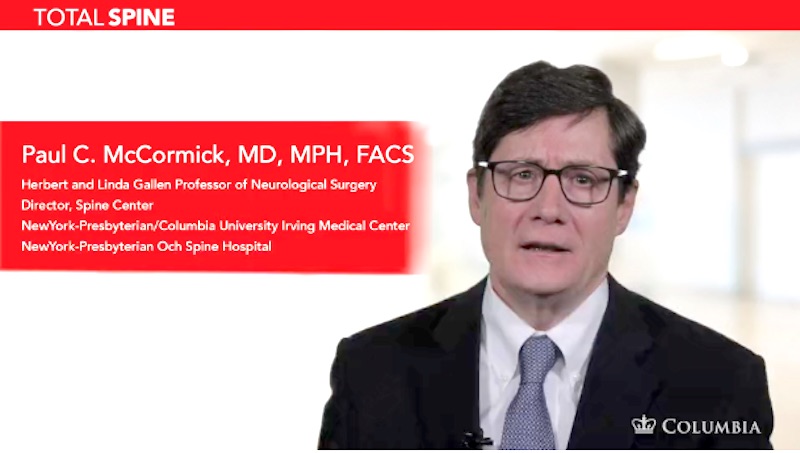The procedure is performed under general anesthesia, which means the patient is unconscious during the procedure. Before and during the operation, the surgeon and neurophysiologists conduct electrophysiological monitoring of spinal cord function. This monitoring includes SSEPs (somatosensory evoked potentials) and MEPs (motor evoked potentials), tests that show the electrical impulse of a signal passing through the spinal cord and spinal nerves.
First, the neurosurgeon makes an incision in the skin overlying the tumor. The soft tissues and muscles are moved aside to expose the back of the spine, and the laminae (superficial spinal bones) are removed to access the spinal canal. In rare circumstances, when the tumor is on the front of the spinal cord, the neurosurgeon may access the spinal canal from the front or the side of the spine.
Within the spinal canal is a tissue-lined compartment that contains the spinal cord and nerves, which are bathed in cerebrospinal fluid. The tissue lining of this compartment is known as the dura. The dura is opened to expose the spinal cord and nerves.
Using the high magnification and illumination of the operating microscope, our neurosurgeons apply microsurgical techniques to carefully dissect the tumor from the surrounding structures to the greatest extent possible for safe removal. Electrophysiological monitoring continues during this period to continue to oversee safety of the spinal cord. Once the tumor is removed the dura is sutured or stitched closed. A water-tight closure of the dura is important in order to avoid leakage of the cerebrospinal fluid. Spinal fusion is rarely needed following removal of these tumors.
The soft tissues overlying the spine are then closed in multiple layers and the skin closed with either staples or a nylon suture. The incision is then covered with a gauze bandage.


